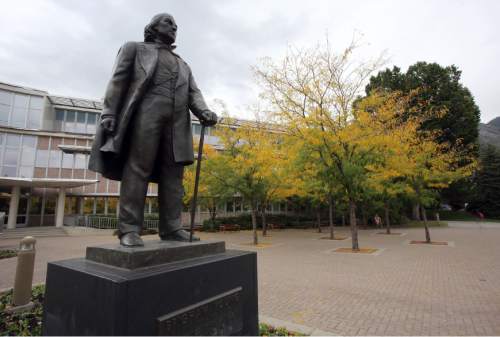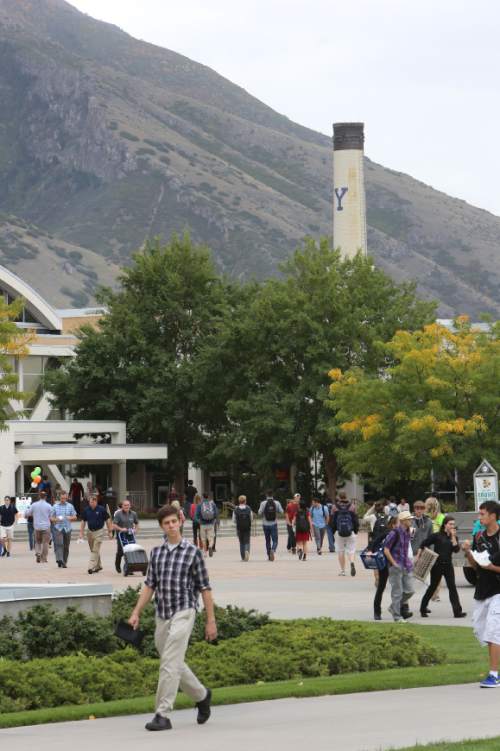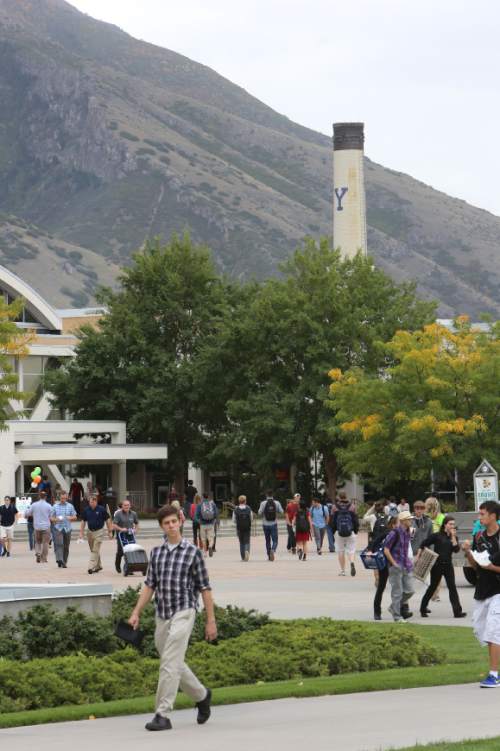This is an archived article that was published on sltrib.com in 2015, and information in the article may be outdated. It is provided only for personal research purposes and may not be reprinted.
Brigham Young University will again have to defend itself from allegations it misled a couple about how their donations to the school would be used.
The Utah Court of Appeals has reversed a lower court ruling that dismissed claims of negligent misrepresentation and fraud in the inducement of donations from Ralph and Muriel Siebach, who wanted the money to further their son's research.
However, BYU did score a victory. The 3-0 decision upholds a lower court's dismissing a claim that BYU had to follow the Siebachs' intent.
The Court of Appeals decision sends the case back to 4th District Court for further proceedings on the fraud in the inducement and misrepresentation claims, as well as a claim that BYU breached an agreement to return the Siebachs' unspent donations to them. The decision, issued Oct. 8, does not make any determination on the merits of the claims.
The lawsuit stems from a dispute over the Rhetorical Studies Account, established by BYU in 1990 at the request of then-Professor James Siebach, the Siebachs' son. In the following years, the Siebachs and other donors contributed $425,000 to the account, the lawsuit says.
According to the suit, the account was restricted to use for research and promotion of philosophical studies by James Siebach. But in 2011, BYU changed the account from "restricted" to use by Siebach to "unrestricted," the suit claims.
Ralph and Muriel Siebach said they asked that the unspent portion of their donations be returned to them and claim BYU offered to return approximately $114,000, allegedly less than the remaining balance, but then imposed unreasonable conditions on the transfer.
The Provo-based university has countered that although there were negotiations, no agreement was reached to return money to the Siebachs.
The couple filed suit in 2013 seeking an accounting of their donations; a declaration that certain funds were restricted to a specific purpose; and the recovery of "all amounts BYU mismanaged in a manner contrary to the Siebachs' donative intent." The two claimed university officials had stated "unequivocally" in correspondence that their donative intent would be honored and that BYU breached an agreement to give back money to them.
BYU alleged in a motion to dismiss that the suit does not identify any communication by the Siebachs of their donative intent. In addition, the motion said, the Siebachs lack standing to sue because Utah has adopted the Uniform Prudent Management of Institutional Funds Act (UPMIFA), which makes clear the state attorney general is the only party who can bring a legal action concerning the terms of a restrictive gift.
Howard dismissed the suit last year, ruling "a donor who believes a donee is using a gift in a manner that is inconsistent with its terms or purpose must appeal to the state attorney general." The Siebachs then took their case to the Court of Appeals.
The appeals court upheld Howard's ruling on the standing issue but ruled the Siebachs can press their claims that their donations were induced by fraud or negligent misrepresentation.
The ruling notes the UPMIFA governs a charitable institution's post-donation management of funds. However, it says, the state's Charitable Solicitations Act addresses the solicitation of funds and the act "anticipates donors personally seeking damages when their donations are procured by fraud."
The Siebachs also can pursue their breach-of-contract claim, the appeals court said, because the alleged agreement to return money "did not involve donative intent."
Twitter: @PamelaMansonSLC







